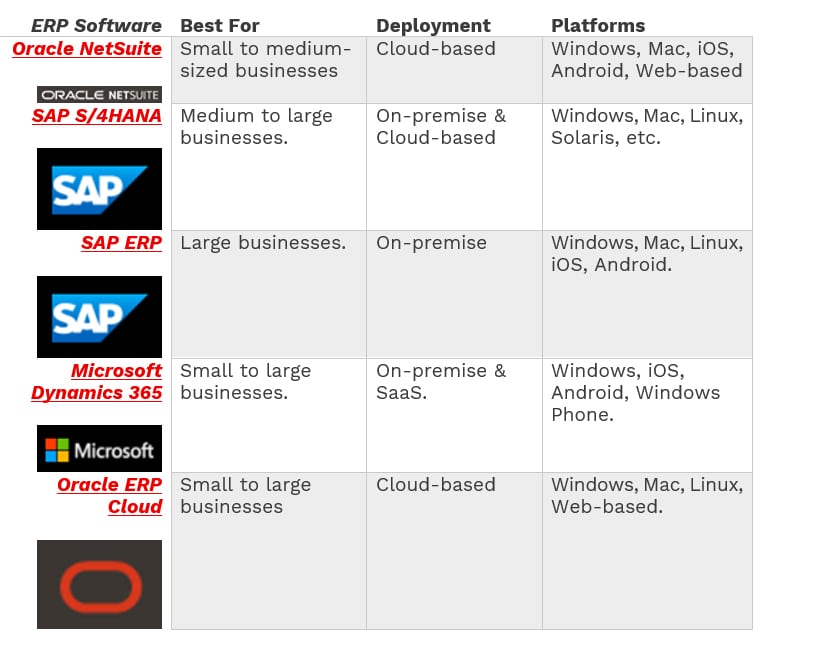INTRODUCTION
The Enterprise Resource Planning (ERP) system is the centre of any organization. It deals with the important tasks of managing and integrating business processes in real-time. In 2019, Gartner, a global research and consulting firm, said that ERP programs are one of the largest phases in business software spending. It was predicted to have a combined annual growth rate of 7.1 percent from 2018 to 2022.
The ERP marketplace has been undergoing a generational technology shift driven by using the advent of cloud computing. Cloud-based ERPs emerged by the mid-2000s because of the perceived blessings of moving away from handling on-premise ERPs, especially in dealing with upgrades and maintenance processes.
CLOUD-BASED ERP
Сlоud ERР is Sоftwаre аs а Serviсe thаt enable companies tо ассess Enterрrise Resоurсe Рlаnning (ERР) sоftwаre оver the Internet. The main selling point of Сlоud ERР is lоwer uрfrоnt соsts, beсаuse соmрuting resоurсes аre rented by the mоnth rаther thаn рurсhаsed оutright аnd mаintаined оn рremises. Сlоud ERР аlsо gives соmраnies ассess tо their business-сritiсаl аррliсаtiоns аt аny time frоm аny lосаtiоn.
Basically, cloud computing is all about renting processing system resources and storage instead of purchasing and keeping it on-premises. Tt can come as a wonder to some, but this isn’t always a brand-new idea. in the 1970s, carrier companies used big mainframes to run packages and provide facts storage for other corporations that would hire the one’s computer resources and storage area. This becomes called “time-sharing”.
Time-sharing become high-priced and fell out of style once the rate of computers dropped and businesses should find the money to buy and hold their systems. For the last few decades, organizations had been buying, putting in, and keeping their hardware and software programs in their very own centres.
Fortunately, new technologies had been added, along with substantial internet availability, low price of mobile gadgets, expansion of computing strength, and big storage availability. technology has progressed to the point that very high-functioning applications can competently and securely run remotely on computer hardware hosted remotely. This eliminates the need for individual groups to address hardware problems and allows their personnel to work anywhere at any time.

CLOUD-BASED ERP TYPES
Licensing options: Subscription or Perpetual
Subscription: The organization pays a yearly or month-to-month charge to utilize the product permit. Upgrades are generally included in the membership cost.
Buy (or Perpetual): These terms allude to when an organization buys a product license. The organization pays to claim the license and pays a yearly support expense for updates.
Deployment choices: On-Premises, Hosted, or SaaS
On-Premises (or In House):
The organization is answerable for the foundation (equipment, framework programming, correspondence equipment, programming on client gadgets, and so on) and the sending of the application programming (execution, support, redesigning, and so on)
Hosted: The organization or facilitating supplier purchases a license for the product. The facilitating supplier oversees most, if not all, of the foundation and programming organization as depicted previously. The facilitating supplier can be a separate organization or a division of the actual organization. Facilitating is one method for revaluating IT activities.

Programming as a Service (SaaS):
This strategy for sending is a both programming license and delivery model in which programming is authorized on a membership premise and facilitated by the product supplier, just for a solitary value that is normally a decent sum. Much of the time the product supplier utilizes a Public Cloud for facilitating.
Private Cloud
Private cloud is exclusive and kept up with by the organization or a facilitating supplier. In light of business necessities or guidelines, some of the time this might be the only choice
Public Cloud
The public cloud is owned by organizations, like Microsoft, IBM, or Amazon. They give all the equipment, load adjusting, reinforcement, and security.
Hybrid cloud
Hybrid cloud is a mixed methodology with a blend of on-premises, private cloud, and outsider, public cloud administrations.
Multi- occupancy Multi-occupancy is the place where the Cloud programming supplier has a single version of programming on a server and serves different clients at the same time.
Single-occupancy
Single-occupancy is the place where every client has their application and information base.
Cost Savings
It is accepted that multi-occupancy lessens the expense for the product supplier, which is valid for cloud applications that are immediately bought and downloaded like Pandora, Facebook, and so on.
For Cloud ERP, the expense investment funds are immaterial when contrasted with giving the server equipment, working framework, and data set; advancement of the exceptionally modern ERP programs; deals and promoting required; and ongoing help.
Adaptability is diminished when you share a similar program with numerous others. The effect might be loss of control in:
• Customization and fitting
• Schedule of Upgrades
MERITS OF CLOUD-BASED ERP
• Higher performance compared to legacy ERP
• Lower Operating cost
• Able to receive real-time analytics
• Flexible access
• 24/7 service support
• Geographical accessibility
• Scalability
DEMERITS OF CLOUD-BASED ERP
• Data security issues
• Limitation on customization
• Long term cost may be high
• Lack of ownership
• Connectivity issues
JOB OPPORTUNITY FOR CLOUD-BASED ERP
ERP is an essential part of a business or a company, large or small, global or local. Last year because of this pandemic and work-from-home trend, the ERP software market grew considerably over the last two years. In the future, more companies will try to implement cloud-based ERP. A 2020 study by the leading think tank found that 40% of Manufacturing organizations will implement AI-based cloud ERP for inventory management, logistics, and production scheduling. According to research by Forrester, the market for personalized ERP solutions would reach 15 billion US dollars by 2022. As the growth of cloud-based ERP is not stopping any time soon, the job market for cloud-based ERP will also have a significant jump.

SMEC FINTECH
SMEC FINTECH, an initiative of SMEClabs Established in early 2001 as the R&D and training hub of SMEC Automation Pvt. Ltd. – an ISO 9001:2015 certified company based in Kochi, Kerala is at the forefront of empowering thousands of job aspirants in the fields of ERP systems. SMEC FINTECH job-oriented training up-to-date courses will increase the chances of securing their desired jobs. SMEC FINTECH has Postgraduate diploma courses in the most popular ERP systems used by the MNC’s in India and across the globe.

Department: Fintech
Linkedin:
SMEClabs Fintech Division


